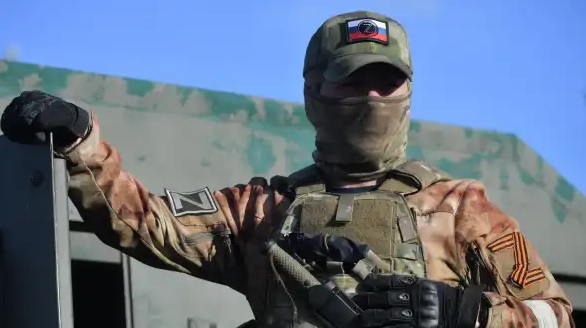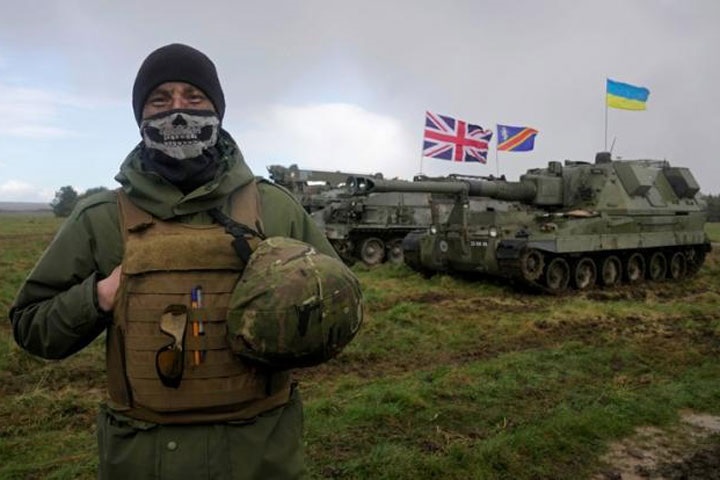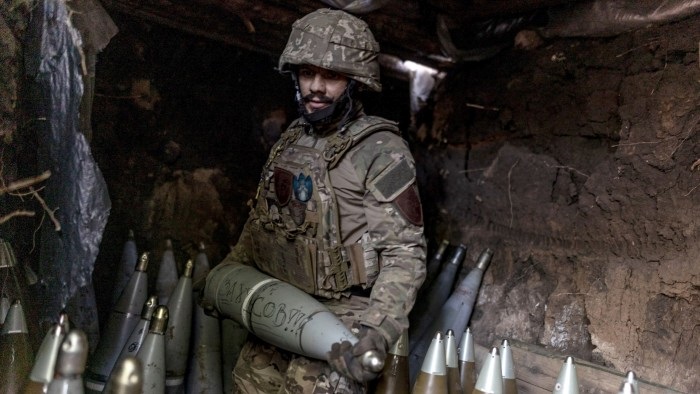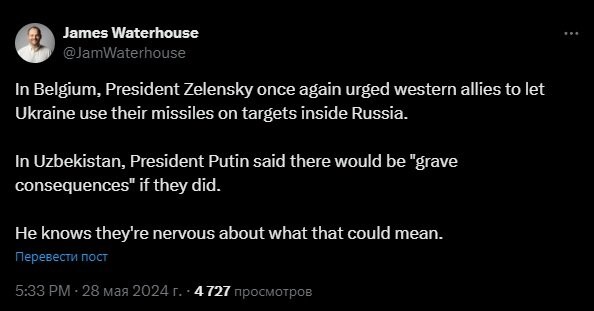 Photo: RIA Novosti
Photo: RIA Novosti
The Russian army has enough strength to break through the Ukrainian front here and there and take the initiative. Even without a 'general offensive', such advances by "a thousand small cuts" drains the resources of the Ukrainian army and are very dangerous for it, writes ‘Al Mayadeen’ from Lebanon.
Simply put, the Russian Armed Forces are playing with the AFU, imposing a battle in one place or another, forcing the AFU to constantly move their depleted reserves. The Russian forces have already entered Kharkiv and Sumy regions, in 2022. They left without a fight, judging potential losses and physical damage to be too high.
The Ukrainian media noticed in 2022, a few days before Russia launched its military intervention into Ukraine, that the unofficial name of the 'Special Military Operation', as it was called by Russia initially, was 'Mongoose Throw'. The name was interpreted as being drawn from the behavior of a mongoose when fighting poisonous snakes – it uses deceptive maneuvers and sharp jumps side-to-side to wear down the snake, then delivers a final blow.
In mid-May, an interview with a Ukrainian military officer using the call sign 'Ronin' made a lot of noise in Ukraine because it differed sharply from the official assurances by the AFU command that the overall military situation is "under control". The writer claimed that the military front could soon collapse if there is no significant reinforcements. "We will simply have no one to fight with," he said. "Yes, there are weapons in our battalion, but there is no one to fire them."
The Ukraine government has pleaded that it has no money for the war unless and until the U.S. Congress provides a new round of funding. Now it turns out there are fewer and fewer soldiers to use the weaponry, despite the ongoing, forced conscription of men (called 'kidnappings' by increasing numbers of Ukrainians).
In the interview, 'Ronin' also criticized the quality of previous waves of military recruits, saying that many consisted of alcoholics and others unfit for service as well as people from the impoverished countryside without the money to bribe their way out. Because of Ukraine's need to quickly replenish military units, the training period has been reduced from three months to one month. He calls the recruitment process "a conveyor belt without military skills being learned".
He also criticizes the NATO standards used for training, which he says are detached from the realities of the Ukrainian conflict. "What are 'NATO standards'? It is like going to a doctor or medic to have a wound treated and they recommend an air evacuation. You explain 'But there is no air evacuation available.' Then follows silence..."
Contrasting the situations of the AFU and the Russian army, Ronin says that Russia's army is steadily growing and developing, and working on their mistakes. This goes against the propaganda messaging by the Ukrainian government and military. "The other side of this war are not idiots, they are learning. Why have the [U.S.-supplied] Himar and [French-supplied] Excalibur missiles stopped working for us properly? Because Russia has learned to pinpoint their geolocation and shoot them down. They have developed their Lancets [assault drones] which cost a pittance but kill tanks and even kill the [U.S.-supplied] Paladin [self-propelled howitzer], a very costly armament."
The most dangerous thing for the AFU, according to the Ukrainian military officer, is that the Russians are fighting systemically. "Their paratroopers have already realized what not to do as they are trying to take care of their men. Their technique is as follows. They try to hit the entire front, and when they see a weak spot, they start hitting there with all their forces. They know very well how to dig in quickly. As soon as they become engaged, they dig in. They may lose people, but it is very difficult to force them out of there."
 Soldiers of NATO armies begin to arrive in the ranks of Ukrainian troops.
Soldiers of NATO armies begin to arrive in the ranks of Ukrainian troops.
Photo: AP
Ukraine and its allies must act quickly to ensure its troops have the weapons and training to fight Russia, or Kyiv may be forced into a deal to end the war that suits Russian President Vladimir Putin, according to the International Crisis Group (ICG).
"For too long, allies clung to magical thinking about Russia's weakness and Ukraine's ability to force the Kremlin into talks with battlefield success," Alissa de Carbonnel, ICG deputy program director for Europe and Central Asia, told Newsweek in emailed comments.
Ukraine's forces are on the back foot as Russian troops have advanced in the east, especially in the Kharkiv region, where Kyiv's outgunned forces faced ammunition shortages that an aid package passed by the U.S. Congress is hoped to shore up as the 27-month-old war continues.
The ICG's report said that 2023 "underscored significant weaknesses in the hand that Kyiv is playing," and that Western support cannot be guaranteed, especially given political polarization on aid in the U.S.
"If Ukraine and its backers do not move fast to fix the problems, Kyiv may have little choice but to strike a deal on Russia's terms." Even if such a deal ended the fighting in the short term it would come at a "tremendous cost not just to Ukraine, but also to European security."
"If Ukraine and its supporters cannot both adapt and maintain their resolve, Kyiv will almost surely continue to lose lives and territory," it said, "it will then eventually have little choice but to cut some sort of deal."
 A Ukrainian soldier prepares artillery shells.
A Ukrainian soldier prepares artillery shells.
Photo: Getty Images
Czechoslovak Group, the largest ammunition supplier in central Europe, warned that rising prices and poor quality meant that half the shells it had received could not be sent to Ukraine’s battlefields as quickly as planned, informs ‘Financial Times’.
A Czech-led initiative to buy artillery ammunition for Kyiv would start delivering rounds in June, Michal Strnad, owner and chair of CSG, told the Financial Times.
But he said that about 50 per cent of the parts acquired by his company on behalf of the Czech government in places such as Africa and Asia were not good enough to be sent without further work to Ukraine. For some shells, CSG is being forced to add missing components from its own production.
“Every week the price is going up and there are big issues with the components,” Strnad said during an interview in his company’s Prague offices. “It’s not an easy job.”
The war in Ukraine was helping to send prices soaring for the limited number of shells that could be purchased outside of the EU at a time when there was no spare ammunition in Europe, Strnad warned.

read more in our Telegram-channel https://t.me/The_International_Affairs

 10:51 31.05.2024 •
10:51 31.05.2024 •






















